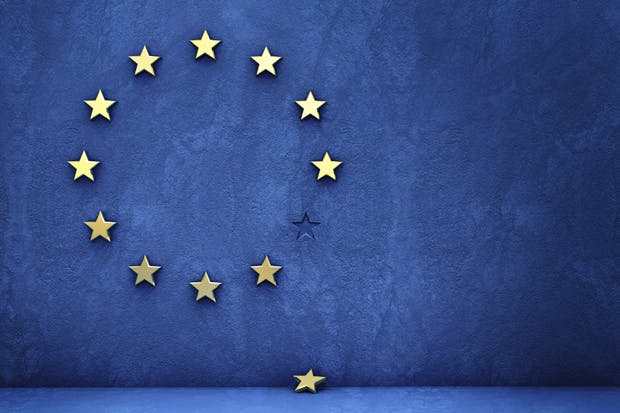Unfriendly commentators can recite insults against the Conservative party in our sleep. It is a rolling shambles, populated by backstabbing fantasists and fanatics. Conservatives are so irredeemably split they removed Boris Johnson only to find they could not unite behind a replacement. Good government is impossible when the ruling elite is composed of shifting factions whose complex hatreds would baffle a historian of the Lebanese civil war.
But a paradox of this government is that there are never splits about the concentration of power in the hands of the executive. Whatever else Conservatives revolt against, they support the Tory state as it continues relentlessly to centralise. And this from a party that once promised to give back control to the peoples of the UK.
To anyone who cares about corruption and unaccountable government the procurement bill now before Parliament is astonishing. About £1 in every £3 of taxpayers’ money – some £300 billion a year – is spent on the public procurement of everything from tanks to hospitals.
Looking at the bill’s provisions, you could be forgiven for thinking that the Government has taken the Covid ‘VIP lane’, that allowed politicians and civil servants to send public money to favoured suppliers, and decided to make the arrangement permanent.
Jacob Rees-Mogg, the Minister for Brexit Opportunities, tried to show his job title isn’t an insult to the public intelligence by saying that repatriating procurement rules from the EU will boost the economy.
Do not be deceived by the chaos. The cock-ups all head in the same direction
‘Freeing businesses from the straightjacket of complicated rules and red tape was one of the key reasons that the British public voted to leave the EU,’ he said. ‘Now that we’re out, we can create a simpler and more transparent system that promotes competition among businesses and reassures taxpayers that every penny of their money is well spent.”
Ah ‘red tape,’ ‘straightjacket,’ ‘competition’: trigger words that switch off the minds of Conservative voters. Before he turns your lights out, it’s worth noticing the Rees-Mogg system isn’t transparent, and taxpayers cannot be reassured when it is wide-open to corruption.
The liberal think tank Best for Britain and opposition politicians in the House of Lords are analysing the measure and concluding that it could allow cronyism that would make the PPE contracts look like child’s play.
Clause 40 allows the state to award public contracts without competitive tender if special circumstances are met. Crucially, it is the minister, not parliament, a regulatory body or the civil service, but the minister alone who defines the special circumstances.
As the bill puts it, ‘in cases of extreme urgency, ministers may singly make provision for the direct award of contracts without the need for consultation or parliamentary consent.’ Note that ‘singly’. All the power to override competitive tendering lies with ministers, and they have an extraordinarily broad set of areas in which they can use their unfettered discretion.
The most worrying is the power to override what are known ‘excluded supplier conditions’. Under the current system, suppliers with criminal convictions, a record of tax and social security evasion, conflicts of interest or grave professional misconduct either face a total or a discretionary ban from bidding for contracts. The bill will make it far easier for the state to bring them in and give them public money.
It looks like a type of conspiracy: a cronies’ charter that allows politicians to reward favoured interests. But the Liberal Democrat peer Lord Wallace, who is leading the opposition, tells me the conspiracy is also a cock-up. The government has tabled hundreds of amendments since it introduced the bill to the House of Lords, as ministers wrote and rewrote supposedly serious legislation covering hundreds of billions of taxpayers’ money on the hoof.
Do not be deceived by the chaos. The cock-ups all head in the same direction: towards the centralisation of power in the hands of the executive. The procurement bill is a piece of a wider pattern. ‘Taking back control’ has not meant a revitalisation of British democracy. Power has not gone to Parliament, let alone to the regions and localities, but has been concentrated in the hands of the executive.
Last year, the House of Lords produced a report entitled ‘Government by Diktat’ peers issued a ‘stark warning’ that Brexit and the pandemic had shifted the balance of power away from Parliament. They talked of the Government’s use of skeleton bills, measures that are so devoid of content they leave the real operation of the law to ministers.
I am fascinated by why Conservative politicians and voters are not more worried about the creeping accumulation of power or by the attacks on independent institutions from the courts to the BBC.
In the 20th century, there was a balance of fear. Governments might have wanted autocratic command but they worried what would happen if the other side got it and used excessive state power in its own interest. To bring us up to date, why shouldn’t a Labour government respond to the Conservative attacks on the BBC and Channel 4 by imposing Lord Leveson’s controls on newspapers?
Forgive me, if I have missed anything, but I never hear voices from the Tory world warning that they are handing weapons to their opponents.
However chaotically they govern, however miserable life in the UK becomes, Conservatives behave as if they will always be in office and Labour will never be in a position to turn their state apparatus against them.
When Frederick the Great saw his Prussians troops cowering at the Battle of Kolin in 1757, he urged them towards gunfire with a cry, of ‘Rascals would you live forever?’
The rascals running the Conservative party appear to think that they can. They will have the most awful shock when they discover they are mortal too.







Comments